National History Museum of Moldova opens unprecedented exhibition on Roma women’s experiences during the Holocaust
Date:
Between 2 and 23 August, the National History Museum of Moldova is hosting a unique exhibition on the experiences of Roma women during the Holocaust, from the years 1942 to 1944. The exhibition – the first of its kind in Moldova – features photo-documentary testimonies of Roma women who were deported and murdered during the Second World War in concentration camps near the Dniester and Bug rivers. The exhibition pays tribute to all Holocaust victims of Roma ethnicity, stressing the dangers posed by war and the need to combat all forms of discrimination and hate.
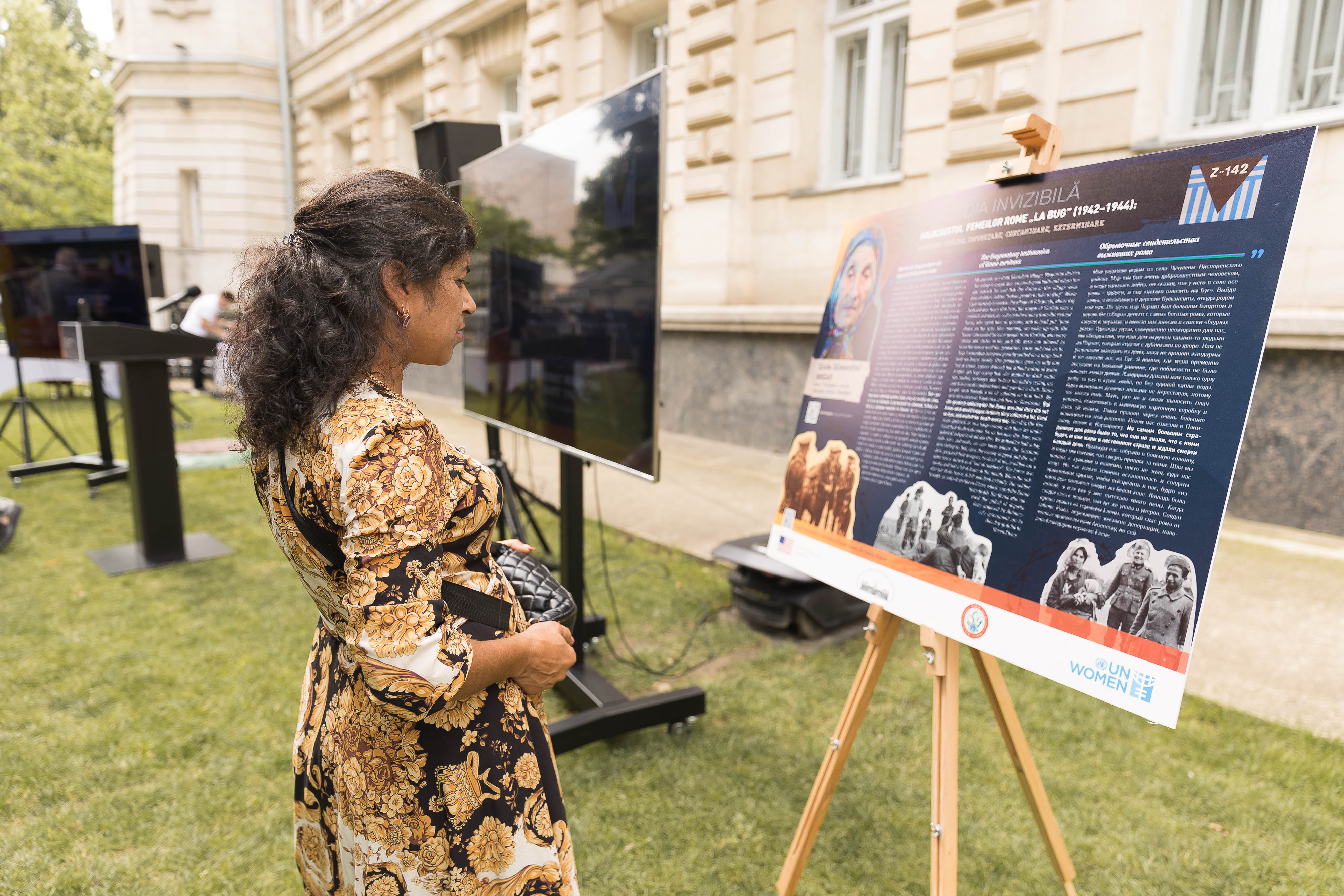
Photo credit: Stela Donțu/ UN Women
At the exhibition’s opening, Ana Varzari, Secretary General of the Ministry of Culture, reiterated Moldova’s commitment to observing the memory of the Holocaust and promoting a culture of tolerance to combat racism, xenophobia and other forms of intolerance. “It is our moral duty that these atrocities never happen again, that people live in a world with peace between nations and respect between ethnicities,” she said.
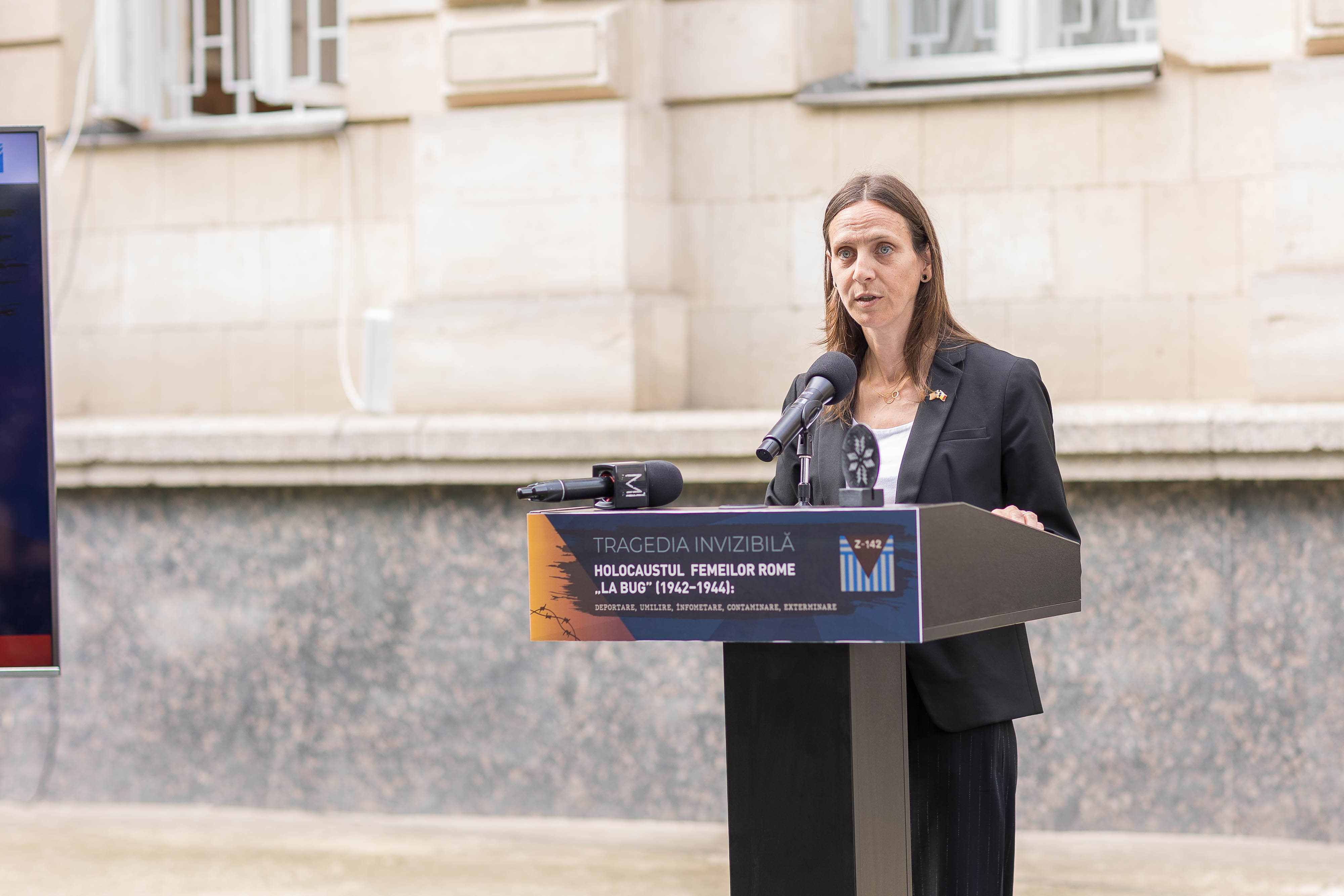
Photo credit: Stela Donțu/ UN Women
Laura Hruby, Deputy Chief of Mission, Embassy of the United States to Moldova, spoke about Moldova’s efforts to counteract any form of discrimination, including against Ukrainian refugees fleeing the deliberate war caused by Russia. She also emphasized the need to push back against attempts to justify the Holocaust: "We all must make efforts to counteract the distortion and denial of the Nazi genocide against the Roma people, tackling the falsification, attempts at justification or the deliberate erasure of history."
Between 1942 and 1944, some 25,000 Roma from Romania, including 2,123 living in Basarabia, were deported (evacuated) and exterminated in concentration camps located in the territory between the Nistru and Bug rivers.
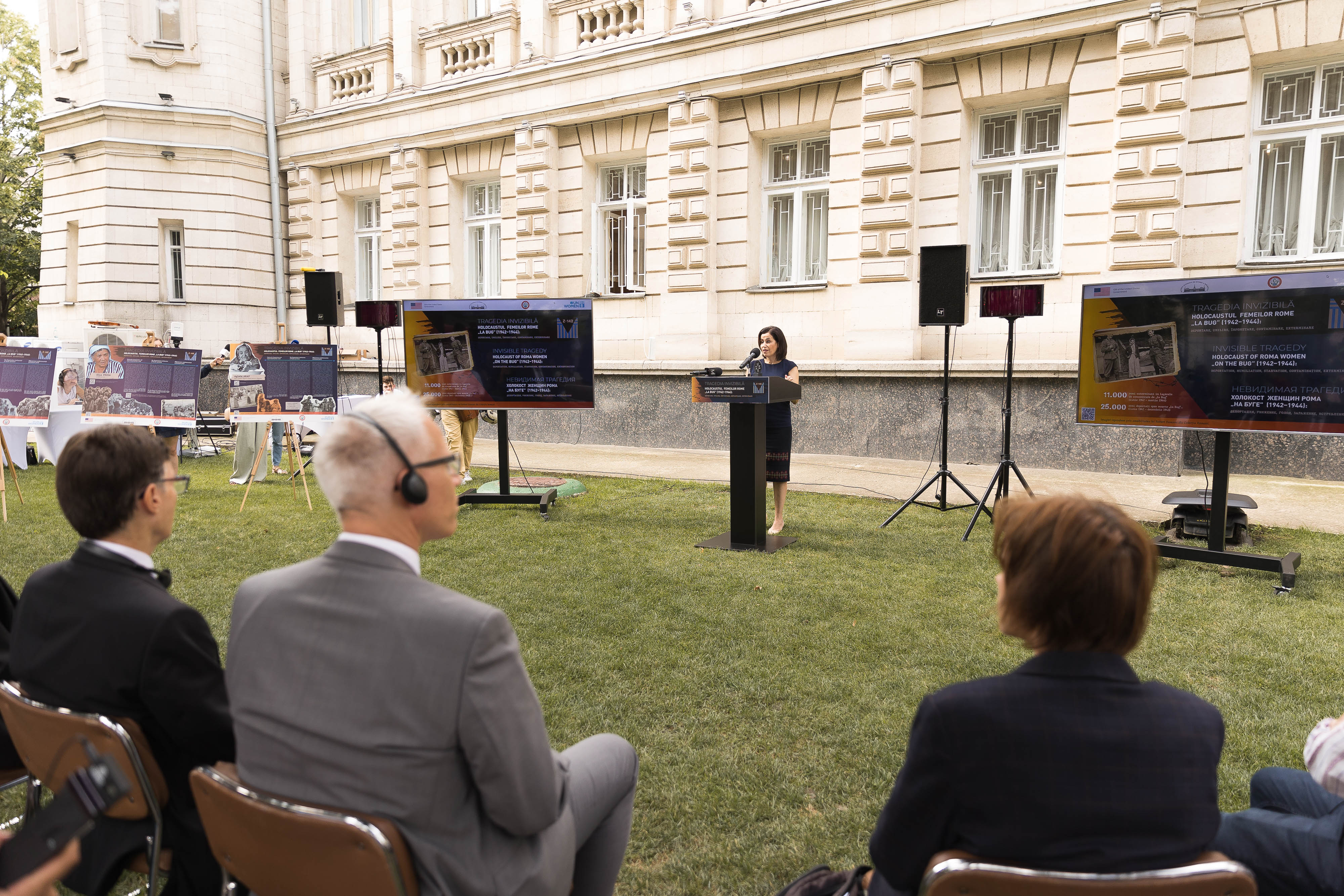
Photo credit: Stela Donțu/ UN Women
For the first time in Moldova, the Roma Holocaust is being commemorated from the perspective of women, said Dominika Stojanoska, UN Women Moldova’s Country Representative. She stressed the need to continue supporting Roma women, who are still subject to discrimination based on gender and ethnicity: "We will continue to increase awareness about the dangers of discrimination and provide support to these groups of people so that no one is left behind."
In 2015, the European Parliament, through a special resolution, proclaimed 2 August as the European Roma Holocaust Memorial Day. On 22 July 2016, the Parliament of the Republic of Moldova voted on a "Declaration regarding the Acceptance of the Final Report of the International Commission for the Study of the Holocaust in Romania, chaired by Elie Wiesel." Later, the government approved an action plan committing to join efforts with the international community to study the Holocaust and commemorate its victims, the Jews and the Roma.
“There is only one way to free ourselves of inter-ethnic hatred: mutual respect,” said Dmitri Moruz, the Director of Inter-Ethnic Relations Agency. He expressed hope that next year, Roma Holocaust Memorial Day will be commemorated through a monument built in memory of the Roma.
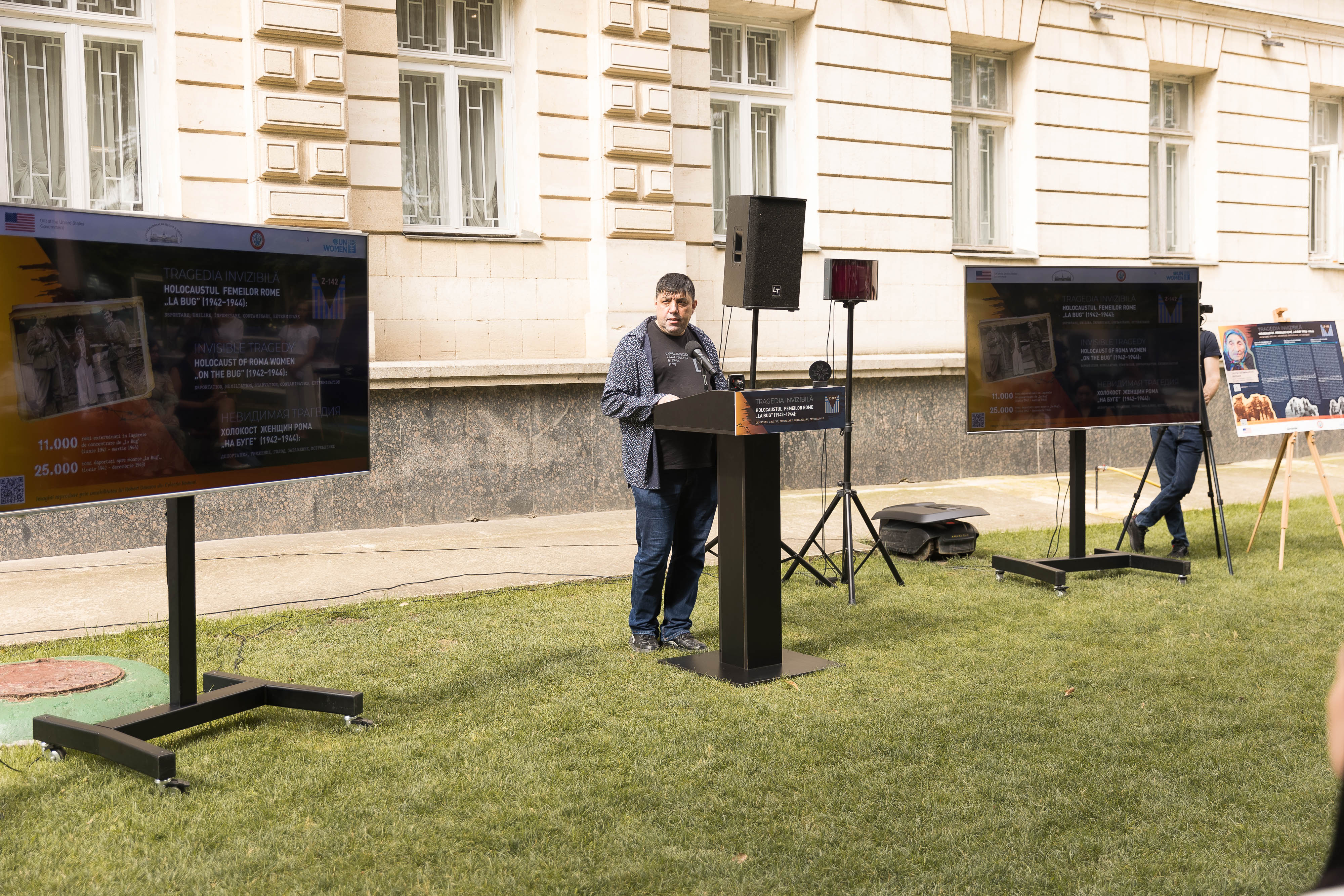
Photo credit: Stela Donțu/ UN Women
Researcher Ion Duminică mentioned that the exhibition, which is titled "Invisible tragedy. Holocaust of Roma Women ‘on the Bug’ (1942-1944): deportation, humiliation, starvation, contamination, extermination," presents photographs accompanied by memoirs and archival documents from the time. According to him, it is more relevant than ever to not merely learn about the glorious side of the war but the tragedy that any war brings to people. "In order for the Holocaust to never repeat itself, we must understand what it was," said Dr. Duminică.
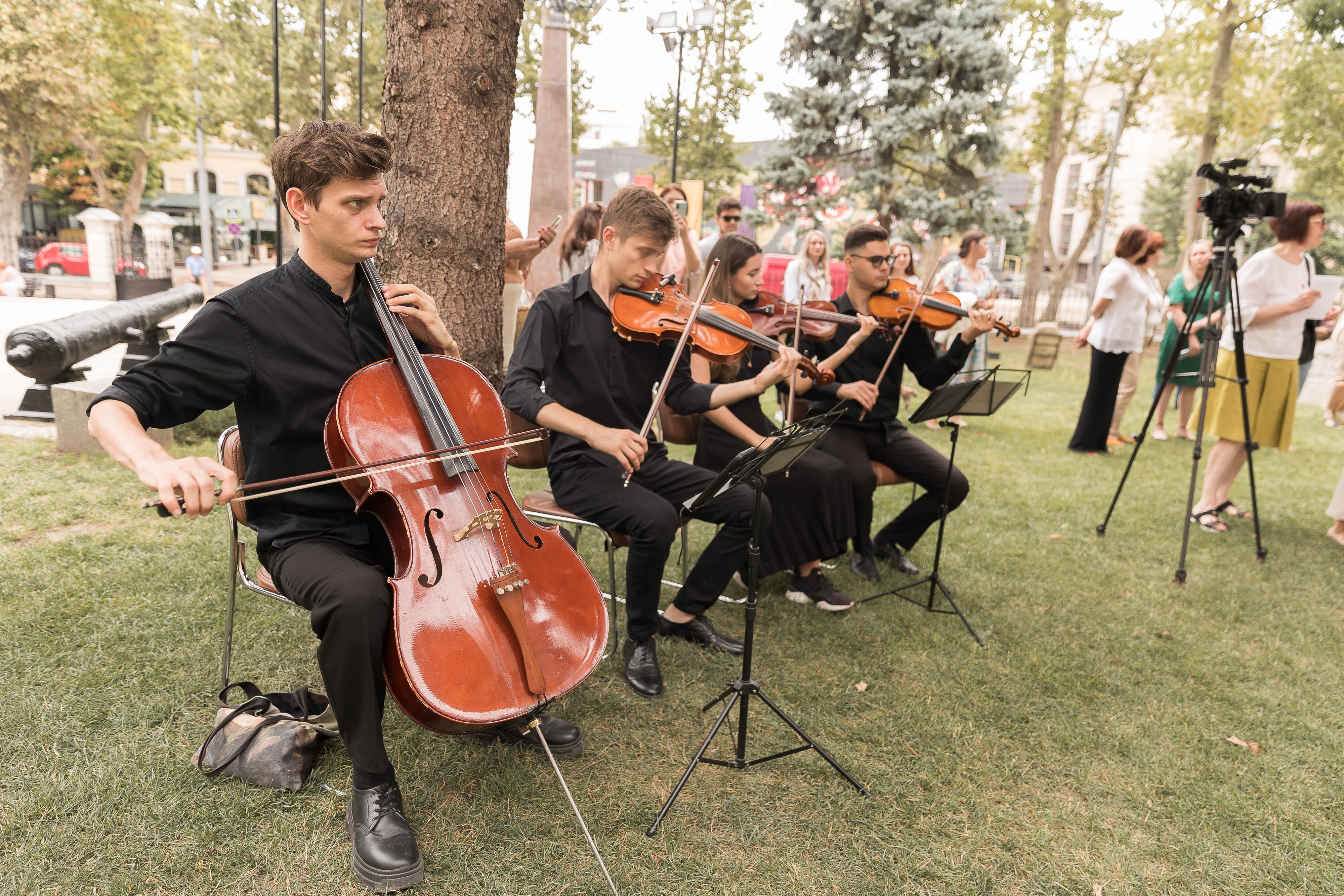
Photo credit: Stela Donțu/ UN Women
The exhibition "Invisible tragedy. Holocaust of Roma Women ‘on the Bug’ (1942-1944): deportation, humiliation, starvation, contamination, extermination," is organized by UN Women Moldova in collaboration with the "Voice of the Roma" Coalition, the Roma Women's Platform "ROMNI” and the National History Museum of Moldova, with financial support from the United States Government.